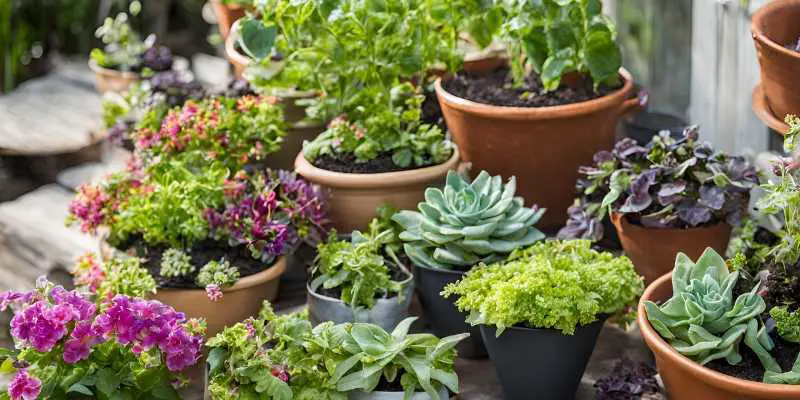Mulching garden beds helps retain moisture and control weeds. But timing is key.
Knowing when to mulch can make a big difference in your garden’s health. Mulching at the right time ensures plants get the most benefit. Early spring or late fall are common times. Each season has its pros and cons. Understanding the best time can save effort and improve results.
In this post, we’ll explore the ideal times to mulch. We will discuss the benefits of each season. By the end, you’ll know the best time to mulch your garden beds for optimal growth. Let’s dig in!
Benefits Of Mulching
Mulching helps to keep weeds away. It blocks sunlight from reaching weed seeds. Weeds find it hard to grow. This keeps your garden bed clean. You spend less time pulling weeds.
Mulch helps the soil stay moist. It reduces water evaporation. Plants get more water. You do not need to water as often. This saves water and time.
Types Of Mulch
Organic mulch helps keep soil healthy. It includes things like wood chips, leaves, and straw. These materials break down over time. They add nutrients to the soil. This type of mulch also helps keep moisture in the soil. It looks natural and blends with garden beds. Organic mulch is good for the environment.
Inorganic mulch lasts longer than organic mulch. It includes things like gravel, stones, and plastic sheets. These materials do not break down. They do not add nutrients to the soil. But they help control weeds. Inorganic mulch is good for decorative purposes. It comes in many colors and shapes. It can make your garden look neat.
Spring Mulching
Spring mulching is best done after the last frost. This helps retain moisture and keeps weeds at bay. Apply mulch when the soil has warmed up.
Advantages
Spring mulching can be very helpful for your garden. Mulch helps keep the soil moist. It stops weeds from growing. It also makes your garden look nice. Mulch can help plants stay healthy. It can keep the roots cool during hot days. Mulch can break down and add nutrients to the soil.
Best Practices
Choose the right mulch for your garden. Organic mulch is a good choice. Spread the mulch evenly. Do not make it too thick. Keep mulch away from plant stems. Water the garden before mulching. Check the mulch regularly. Add more if needed.

Credit: www.reddit.com
Summer Mulching
Mulching in summer helps keep the soil cool. It protects plant roots from the sun. Mulch acts as a shield against extreme heat. This protection can prevent plants from wilting.
Mulch helps the soil hold water. This reduces the need for frequent watering. It also prevents water from evaporating quickly. This is important during hot summer days. Using mulch saves water and time.
Fall Mulching
Fall mulching helps protect your garden beds. It keeps the soil warm. This is called soil insulation.
Soil Insulation
Mulch acts like a blanket. It keeps the soil from freezing. Plants stay safe from the cold. Their roots stay warm. This helps them grow better in spring.
Nutrient Addition
As mulch breaks down, it adds nutrients to the soil. These nutrients help plants grow strong. They feed the soil and make it rich. Healthy soil means healthy plants.

Credit: www.youtube.com
Winter Mulching
Winter mulching helps guard plants from frost. The mulch acts as a blanket. It keeps the soil warm. This warmth protects plant roots from freezing. Roots stay safe and healthy. Frost can damage plants. Mulch reduces this risk. It also keeps the soil moist. Dry soil gets cold faster. Moist soil stays warmer. Mulch helps with this too.
Roots need protection during winter. Mulching is a great way to do this. It stops the soil from freezing. Roots stay safe and sound. Mulch also keeps the soil stable. This stability is important. Plants can grow better in stable soil. In winter, mulch is a must-have for gardens.
Mulching Mistakes To Avoid
Too much mulch can hurt plants. It can block water and air. Roots need both to grow well. Thick mulch can cause plant roots to rot. It also makes a home for pests. They can harm plants. Use only 2-3 inches of mulch. Spread it evenly. Keep mulch away from plant stems. This helps plants stay healthy.
Timing is key for mulching. Early spring is best. Wait until soil is warm. Mulching too early can trap cold. This harms new plants. Mulching too late misses the benefits. It helps soil keep moisture. It stops weeds from growing. Mulch in early spring for best results.
Expert Tips For Effective Mulching
Mulch helps plants grow better. There are many types of mulch. Organic mulch includes wood chips and straw. Inorganic mulch includes stones and plastic. Organic mulch breaks down over time. This adds nutrients to the soil. Inorganic mulch does not break down. It lasts longer. Choose the mulch that fits your garden needs.
Apply mulch in a thin layer. Two to three inches is enough. Keep mulch away from plant stems. This prevents rot. Spread the mulch evenly. This helps retain moisture. Mulch helps control weeds. It also makes the garden look neat. Refresh the mulch once a year. This keeps it effective.

Credit: www.reddit.com
Frequently Asked Questions
When Should I Mulch My Garden Beds?
The best time to mulch garden beds is in the early spring. This helps retain moisture and suppress weeds. You can also mulch in late fall to protect plants from winter temperatures.
How Often Should Garden Beds Be Mulched?
Mulch garden beds once a year. This is typically done in spring or fall. Regular mulching helps maintain soil health and appearance.
What Type Of Mulch Is Best For Gardens?
Organic mulches such as wood chips, straw, and compost are best. They enrich the soil as they decompose. Choose mulch based on your plant’s needs and garden style.
Can Mulching Help Prevent Weeds?
Yes, mulching significantly helps prevent weeds. A thick layer of mulch blocks sunlight, inhibiting weed growth. It also makes it easier to pull any weeds that do appear.
Conclusion
Mulching garden beds at the right time is crucial. It helps plants thrive. Spring and fall are the best seasons for mulching. Each season offers unique benefits. Spring mulching retains moisture. Fall mulching insulates roots. Choose the right time based on your garden’s needs.
Healthy garden beds reward your effort. So, plan your mulching schedule. Keep your garden vibrant and productive all year. Happy gardening!

My mission is to help you bring the beauty of nature indoors with expert advice, detailed plant care guides, and creative design ideas.





Leave a Reply